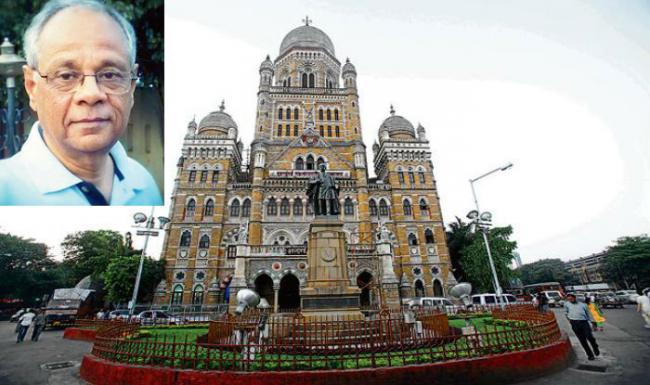Mumbaikars, Wake Up To Your Duty To Vote

Mahesh Vijapurkar
There is something reprehensible in a participatory democracy and that is voter apathy. It means an I-don’t- care attitude though the same non-voting class, intensely politicized, will not cease commenting – cribbing, castigating at the way politics is run – about how not the people but the politicians alone seem to matter in the scheme of things.
It is forgotten that the privileges of being a citizen includes the responsibility to vote, though making it compulsory has had its critics. Forced voting with penalties following for non-compliance is seen as draconian. Right to complain emerges when they have done their bit. The arm’s length position vis-à- vis electoral politics is injurious to the already fraught Indian body politic.
Mumbai has shown this inclination time and again. It had recorded as low as 41 percent turnout in 2009 general elections. In civic elections, in some wards it had slid to as low as 21 percent and the low-voting wards tend to hover around 30-35 percent. February 23, when the results of the city’s civic elections are declared, the pattern of voting shall tell the truth.
The refusal to engage in elections could include the justifiable distaste because the rich who get richer by politics, the hoodlums, etc. are in politics. However, at least in elections to civic bodies – they are self-government unlike the legislative and parliament – the enlightened self-interest ought to prevail. The stakes are high, quality of life by a body which mismanages the annual Rs 37,000 cr budget.
Poor amenities and political greed has made the city a terrible place to live in. Instead of being a provider of first class services in a city which aspired at times to be a Hong Kong, a Singapore, or a Shanghai, Mumbai is so badly run that it can never be a choice for residence. It is only a choice for livelihood of all varieties for men and women of all calibres.
The well-heeled have an attitude which is hard to disagree with. To them, if despite well-set rules of how service deliveries are to be made, cash alone matters. That makes a mockery of elections because your own chosen lets you down by committing himself to a game of venality. Then what price the vote? The middle class is joining this tribe.
There is another distinct class of people who make it a point to vote, regardless of what elections it is: Lok Sabha, Assembly, or the municipal. On Tuesday, following tradition, it quite possible that the slum dwellers will emerge more diligent about their democratic duties. Statistically, either in absolute numbers or as a share of the registered voters across city, more of them would walk to the polling booths.
However, ascribing only the honourable motive of a democratic duty well done as the reason for their better turnouts, would be incorrect. It is the system of patronage which drives politics which draws them out. They have to vote, and be seen to be voting, and preferably in a manner that ensure continuation of patronage of the local politician who may not be much different from a sophisticated hood.
Slums are where the normal laws and rules don’t easily apply, and they are a shadow city within a city. Virtually every second Mumbai resident is a slum dweller in a city that misleadingly offers glass-fronted high-rises as a distinctive feature. Or of late, even expensive gated communities, however small. It is the slums that help run the city – shut them down, and Mumbai can collapse into chaos.
Evictions from and demolitions of slum dwellings have become less of a threat to them because most slums are protected and entitled to free replacement housing, but since they are poorly serviced by the civic body to the extent it amounts to nothing, they need some mai baap. The local politician is that, with his network of hoodlums and operators of parallel services like water tankers.
That they pay more than residents of the formal – that is non-slum, well-served – housing do, and even there an uncertainty exists about when and how much of it would arrive. To even repair a slum dwelling, some protection money is sought. To get the police to attend to a genuine case of slum dweller, an oral recommendation of a politician is almost a necessity.
These supportive benefits flow from patronage. That patronage comes in only when one is either the politician’s voter or a potential voter or else, harassment can visit even those who mind their business and live their depressed lives without cause for complaint from their neighbours. That is why both the politicians and the slum residents value to slum vote.





